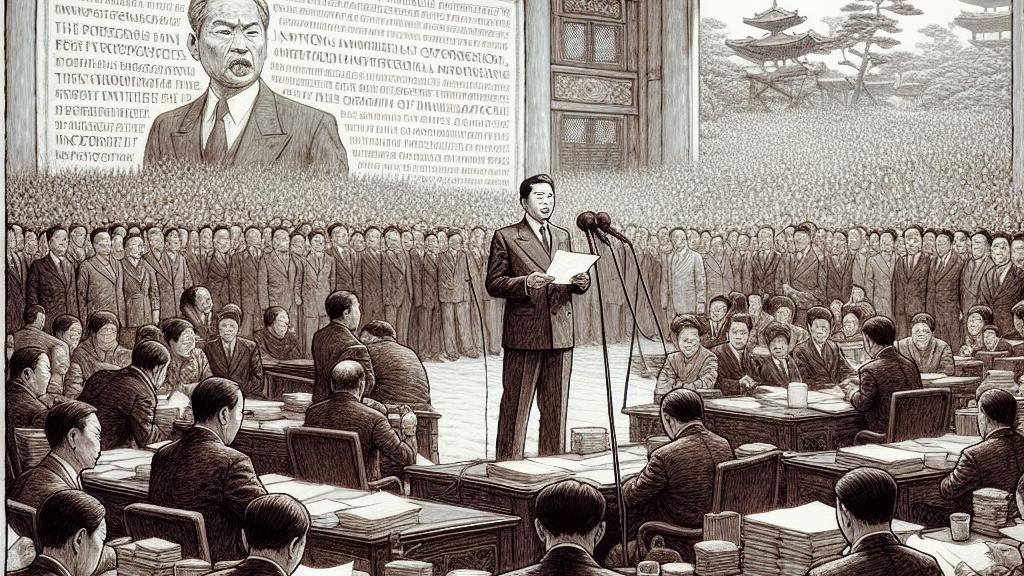South Korea Declares Martial Law Under President Yoon to Combat Pro-North Forces
Overview
- In a groundbreaking decision, President Yoon Suk-yeol has proclaimed martial law for the first time in 44 years, igniting widespread debate and concern.
- This declaration includes an absolute ban on political gatherings and stringent media oversight, evoking fears over civil rights and democracy.
- Yoon's mission is clear: to eradicate pro-North Korean factions, aiming to safeguard South Korea's constitutional fabric amidst rising political tensions.

A Historic Moment in South Korea
On December 3, 2024, President Yoon Suk-yeol made a shocking announcement from the presidential office in Seoul: martial law has been declared. This radical move, the first of its kind in 44 years, was framed as an urgent response to what Yoon described as a looming threat posed by pro-North Korean groups. He painted a vivid picture of a nation teetering on the brink, battling internal disruption and undermining efforts at democratic governance. Reflecting on the charged political climate, he cited increasing hostility from the opposition, particularly the Democratic Party. Here, members have accused Yoon's government of fostering chaos; they’ve initiated numerous motions for impeachment, claiming his administration has strayed from fulfilling its constitutional duties. Such tension resonates deeply within the collective memory of the South Korean populace, recalling a historical narrative punctuated by struggles for democratic integrity.
Consequences of Martial Law: A Double-Edged Sword
The implications of Yoon's decision to impose martial law are extensive. This declaration not only disrupts the political landscape but also instills fears of a powerful government overreach. South Koreans now face a strict prohibition on political assemblies and keen scrutiny of media outlets, which raises pressing questions about freedoms once taken for granted. For instance, opposition leaders have condemned this move as an 'affront to democracy,' warning that it echoes the oppressive tactics of previous military regimes. The streets across major cities, such as Seoul and Busan, have become arenas of protest, where diverse groups—students, activists, and everyday citizens—rally together against this perceived encroachment on their rights. Reports detail impassioned demonstrations and public discourse, showcasing the resilience and determination of those who refuse to see their democratic ideals dashed.
Seeking Stability Amidst Turmoil
At this critical juncture, South Korea stands at a crossroads. President Yoon, who initially entered office with promises to strengthen national security, now faces an uphill battle in healing a fractured society. Many citizens have drawn uncomfortable comparisons to past dictatorship eras, leading to an awakening desire for political accountability. The current protests reflect a broader longing for civic engagement and representation; it’s a vivid illustration of South Koreans collectively asserting their claim to democracy. From organizing online campaigns to hosting grassroots rallies, these efforts signal a resilient pushback against potential authoritarianism. Ultimately, the consequences of this martial law declaration hold significant weight—not just for Yoon's administration but for the very soul of South Korea's democracy, with the nation’s future hanging in a delicate balance.

Loading...